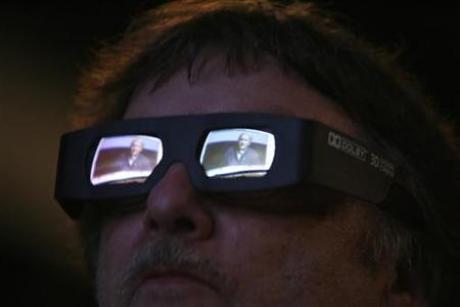James Cameron urges producers to embrace 3D TV

Director James Cameron, whose blockbuster "Avatar" set off a 3D frenzy in the movie industry, on Thursday told television producers to put aside their worries about higher filming costs and embrace the technology.
Manufacturers hope the technology will be as big a boost for the industry as the transition to color television from black and white, but growth is being restrained by high costs for content makers, leading to a dearth of programing.
Consumers who just paid major sums for new flat screen sets may not be ready for another major payment for 3D TVs when there is little to see in the format that requires special glasses for viewing, analysts said.
"(Big entertainment companies) can't be afraid to shoot in 3D because tens of thousands of people all over the world are shooting in 3D every day," Cameron said.
"We're going to have 3D TVs all around us ... and we're going to need thousands of hours of sports, comedy and music and all kinds of entertainment," he said at a technology forum in Seoul.
"Avatar", the highest-grossing film of all time, taking in more than $2 billion, was also reportedly one of the most expensive movies to make with a budget of at least $300 million due in part to its 3D filming.
Cameron said it would prove cost effective over the long run for TV producers to learn how to shoot in 3D instead of trying to convert existing 2D content to the format.
"There's not going to be the time or the money to convert that. It's going to have to be shot live. We're going to learn how to do live shooting. The cost will come down on live 3D production," Cameron said.
South Korea's leading TV brands Samsung Electronics and LG Electronics released 3D televisions earlier this year and anticipate positive sales for 2010.
Japan's Sony Corp will enter the 3D battle this summer, increasing the need for content.
Global demand for 3D TVs will probably reach 15.6 million units in 2013 from an estimated 1.2 million this year, according to research firm DisplaySearch.
Numbers could hit 64 million in 2018, when the research firm expects total sales revenues to reach $17 billion.
"You've got the channel, you've got the sets," Cameron said. "The missing piece is content. You've got to get the content."
 0
0 







Go to Forum >>0 Comments